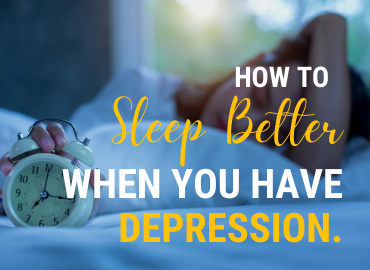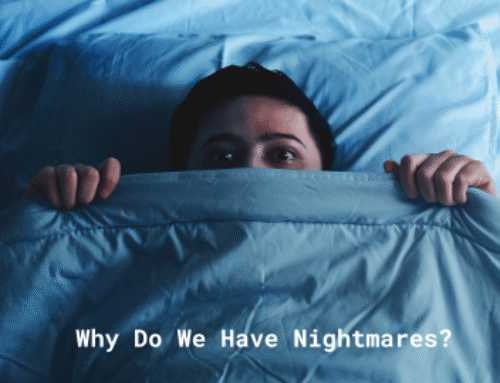Chasing Z’s
Depression is more than just feeling sad or hopeless. Depression often includes physical symptoms like sleep disturbances. Treating the depression should have a positive effect on the patient’s sleep, but there are other things one can do to cope with poor sleep quality.
Recharging Your Batteries
How well we sleep affects our health in multiple ways that are far more serious than feeling tired. The effects of a lack of sleep or poor sleep quality can include a decrease in reaction time and impaired judgment, which can be dangerous. Lack of restful sleep can also weaken your immune system and impair digestion, hinder heart function, and increase blood pressure from the extra effort of functioning. This in turn feeds the depression with fatigue and a general feeling of being unwell. This can lead to a loss of interest in work, school, relationships, and activities the sufferer usually enjoys.
Too Much or Not Enough?
Sufferers of depression experiencing sleep disturbances might have a hard time going to sleep or staying asleep, or they may have more difficulty with oversleeping. Poor sleep quality can lead to oversleeping, but fatigue caused by depression can also be the culprit. Sometimes sleeping is simply a coping mechanism, an escape from an unpleasant reality.
Bring Me a Dream
What can you do to help yourself sleep better?
- Make your sleeping space dark, quiet, and comfortable—no lights or bright electronics. Draw the curtains and close the door.
- What is your sleeping surface like? Sometimes it’s as simple as getting a firmer mattress or sleeping with a fat pillow that supports your neck.
- Experiment with sounds or silence. Some people sleep best in silence, some like music, some prefer white noise.
- Try to move more during the day. Make yourself tired physically and release some endorphins.
- Try to keep a regular bedtime and waking up time. Experiment with alarms too. Some people like waking up to birdsong, others need to put the alarm clock across the room so that they have to get out of bed to turn it off.
- See your doctor if you have persistent problems going to sleep or staying asleep to check for disorders like insomnia, sleep apnea, etc. Oversleeping can be linked to sleep disruptions during the night as it disrupts the REM cycle.
- Try mild, natural sleep aids like hot tea, a warm shower or bath, reading a book, stretching, or listening to music.
- Meditation or relaxation exercises can be helpful. Starting at your toes, tighten and release every muscle in your body, one by one, and feel yourself start to sink into relaxation.
Working on Resting
To improve your sleep quality, start with seeing your general physician. They may have recommendations of their own and may also refer you to a specialist to chase down the root cause of waking up tired. Your sleep may improve as your depression is treated, or it may be a more physical problem exacerbated by depression.
Give us a call if you have more questions. It’s our pleasure to help our patients feel better any way we can.




